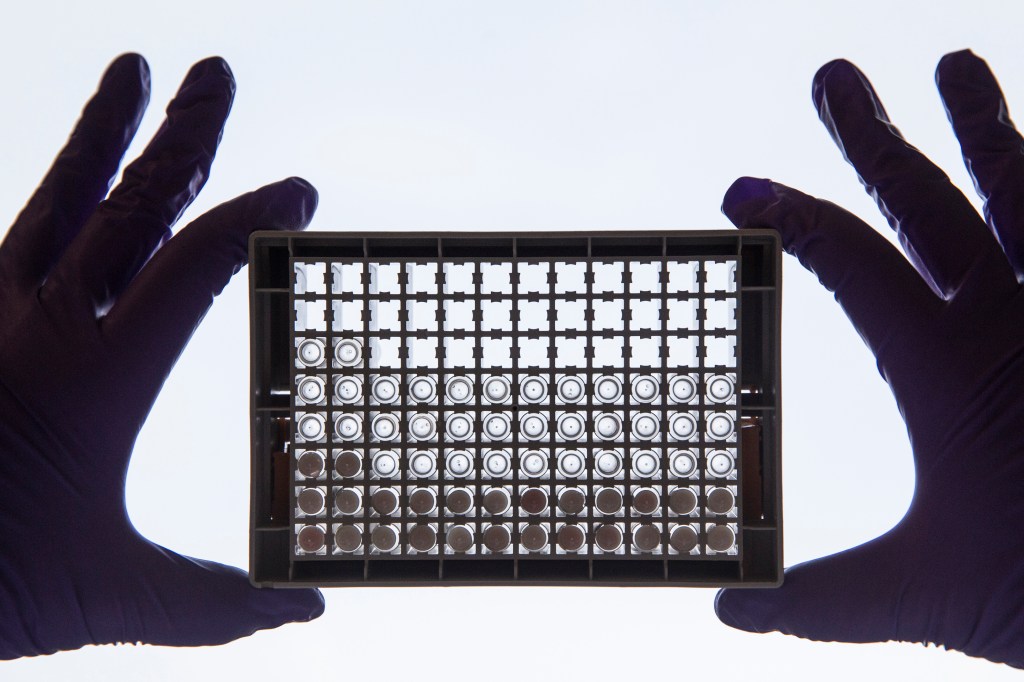Biotech startups can often run aground because of limited resources pitched against the costly demands and long timeframes of drug development.

Professor Alan Trounson AO, is the CEO and Executive Director of Cartherics, a privately held biotechnology company based in Melbourne, that is rearming the body’s immune system to fight cancer. It is developing cell-based immunotherapies for the treatment of cancer, with a portfolio of CAR-T and CAR-NK cell products.
Dr Ian Nisbet is the Chief Operating Officer and a co-founder of Cartherics and also acts as a director or advisor to several Australian and US biotechnology companies.
Here they discuss with Forbes Australia the difficulties faced when building a research-based biotech company in Australia from scratch.
Australia is a very challenging environment for early-stage biotechnology companies. Risk capital is hard to find, and investors are wary of over-promising and under-delivering start-ups, that commonly go aground because of limited resources pitched against the costly demands and long timeframes of drug development.
For public companies, there is often a disconnect between the stock market movements in share price and genuine technology progress. Companies need to remain private longer to allow them to advance their products and technology outside the intense scrutiny of an impatient public marketplace.
While Australia does provide some benefits for the sector (such as the R&D tax incentive, which is critical to young company survival and growth), this important technology sector needs better business models, access to long term financial support and sound management skills.
Our respective experiences in the US showed us the transformational outcomes that can arise when investors are prepared to take a long-term perspective and back scientists and business people with the vision, experience and drive to convert cutting-edge science into innovative products. A similar investment approach is essential if Australia is to develop an internationally competitive sector.
Over the past decade or so, we’ve seen improvements in the financing environment and the emergence of business models that are much more ambitious than those previously seen in Australia. Companies like Mesoblast, Opthea and Telix have been able to tap into the hundreds of millions of dollars required to fund international, phase III clinical trials by attracting investors locally and internationally.
While the likelihood of clinical and commercial success remains uncertain, we should now see the emergence of the next cohort of sustainable mid-tier companies. And, in doing so, a potentially strong return to investors.
Notwithstanding the expanding cohort of Australian biotechnology companies with products in late-stage clinical trials, there are precious few examples of companies that have been able to grow from their own research base to successful product development (and, ultimately, commercial) outcomes, particularly in the context of local venture capital funding.
The local venture model tends to be: (1) find an academic group with some interesting science and, preferably, an associated patent application from which to create a spin-out company; (2) provide a modest amount of capital; (3) push the company to outsource its development activities, with as small an employee base as possible (i.e., the “virtual” company model); (4) require the company to focus solely on its lead asset; (5) exit (i.e., sell the company or out-license the lead asset) as soon as possible; and then (6) repeat.
This model doesn’t work for companies that start as a concept, not a spin-out, with no founding intellectual property, minimal academic institution involvement and no venture financing. Such companies, just like ours Cartherics, are relatively common in the US but not in Australia. They rely on their team’s experience in science, innovation, and business to tap into sophisticated investors with the vision and patience to support building the company from the ground up.
These special types of investors, the ones willing to back the idea, the science, and who value the track record of key team members, are hard to find. In Cartherics’ case, they are “high net worth” individuals who recognise innovators and want to “do good” for people or address medical problems that have a personal connection, and to make money as a spin-off.
They are willing to risk their own money, and convince colleagues and family to do likewise, knowing that they might lose it all. They are prepared to back high-quality people to create a technology platform from scratch, with very limited understanding of the technology itself. Often their commitment is based on a belief that the individual or team have done well before, so why not again?
They are prepared to invest in building an actual company with a technology platform, a product pipeline and all the supporting functions that allow for high quality science and product development to be undertaken. This is the exact opposite to the “capital light”, “personnel light”, single product focused, virtual company model that has become the default for most Australian start-up biotechnology companies.
This model is not for everyone. Doing it hard and staying committed to the “long game” requires building partnerships with like-minded investors, institutions and companies with compatible technologies.
Building a team that can survive (and thrive) in a risk-rich environment, and ensuring it is totally committed and bonded to the objectives, strategy and outcomes, is essential. And competition with much better financed (mostly overseas) companies is a brutal reality. However, the achievement of survival, growth, delivery of new treatments, and, ultimately, financial success can be truly transformational: for patients, for employees, for investors, for the sector, for the country.
Professor Alan Trounson AO, CEO and Executive Director of Cartherics, was a pioneer of human in vitro fertilisation (IVF) (1977-1996) and led the Australian team for the discovery of human embryonic stem cells in the late 1990’s.
Dr Ian Nisbet, COO of Cartherics, was project leader for the development of two FDA-approved oncology drugs, VELCADE® and SYNRIBO®.